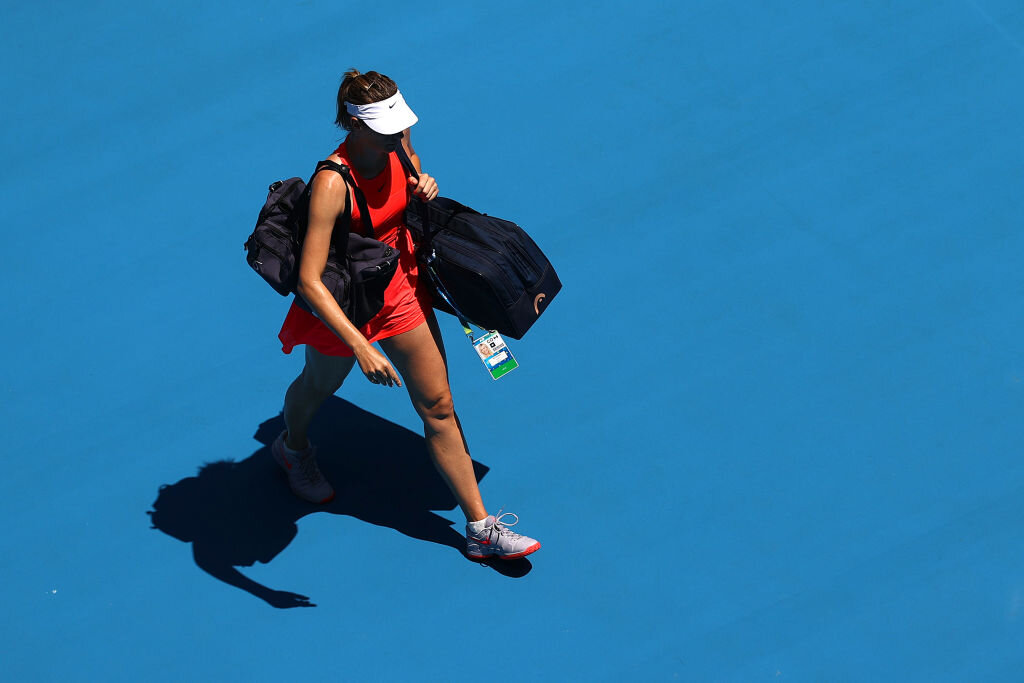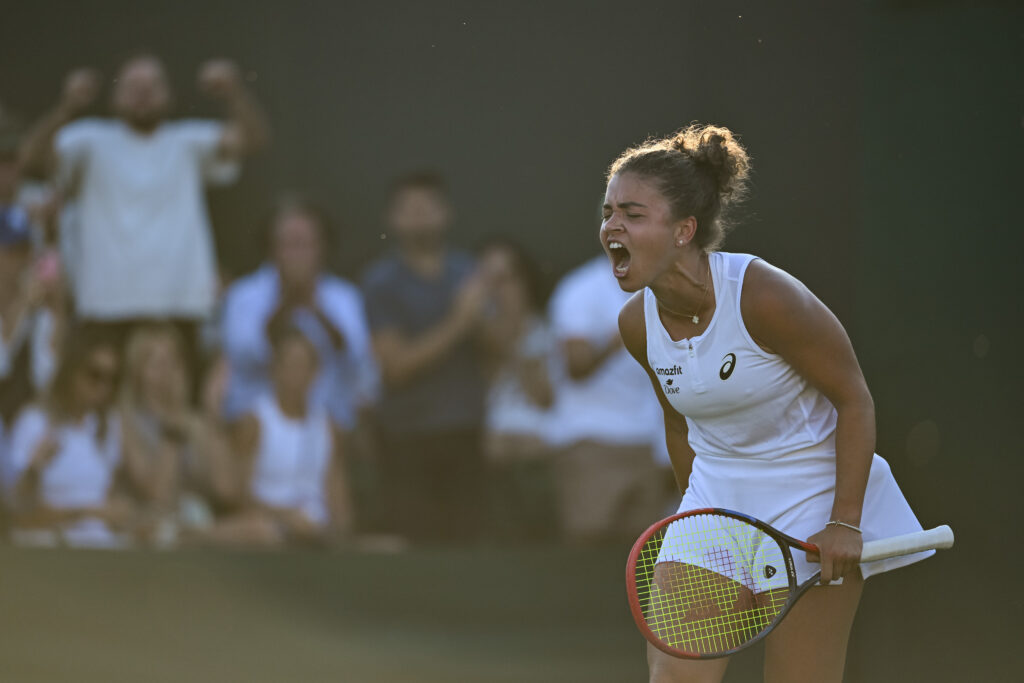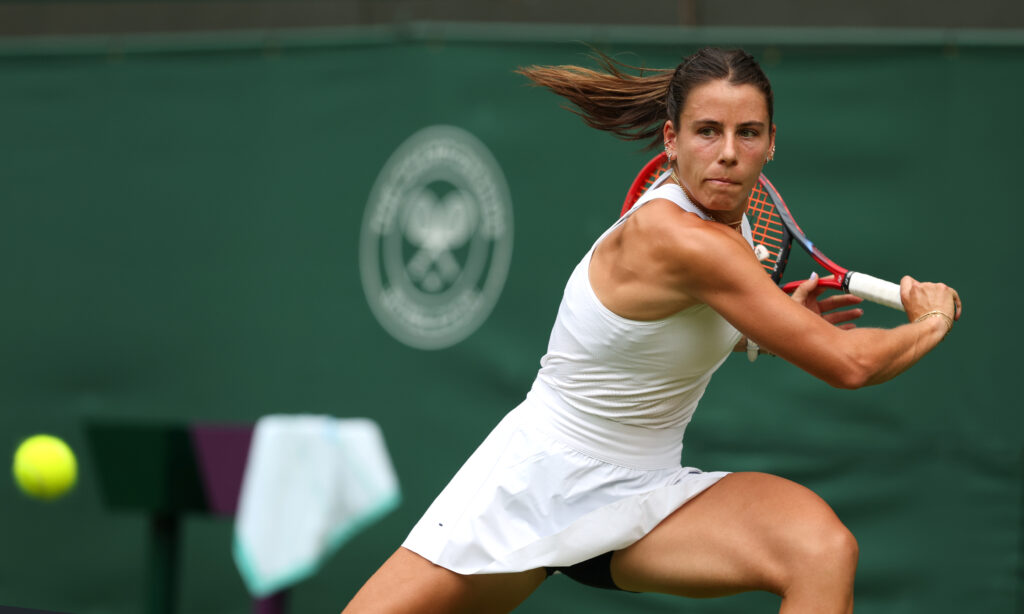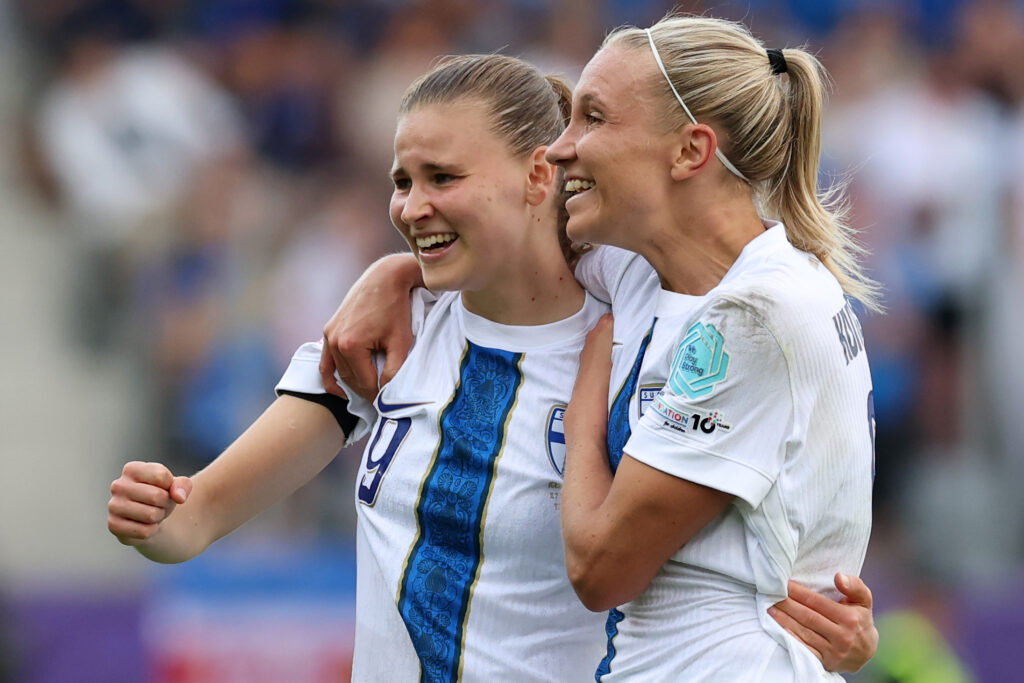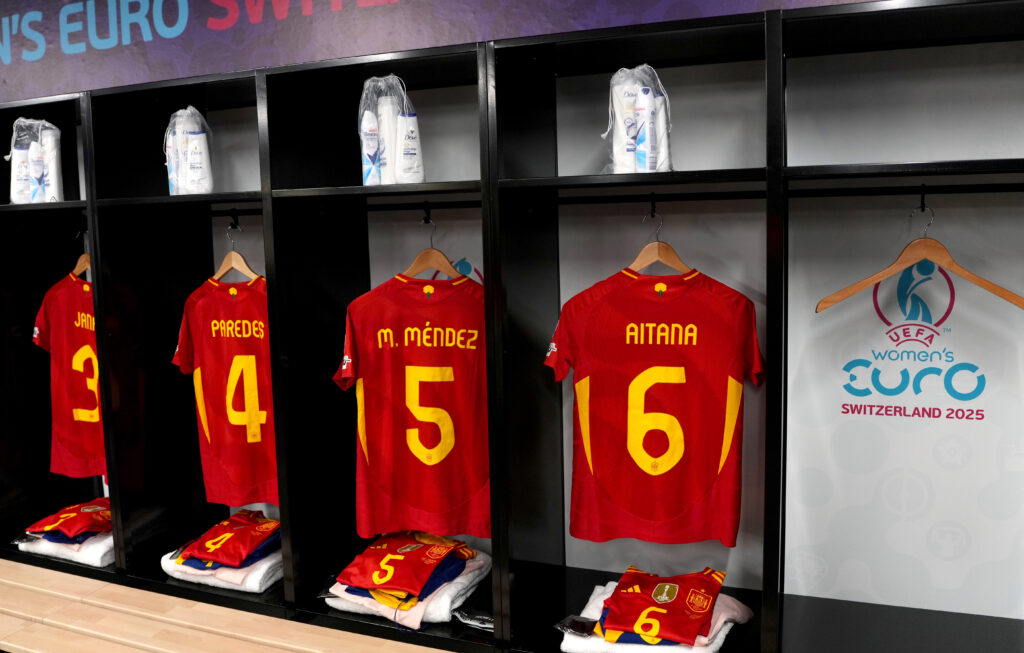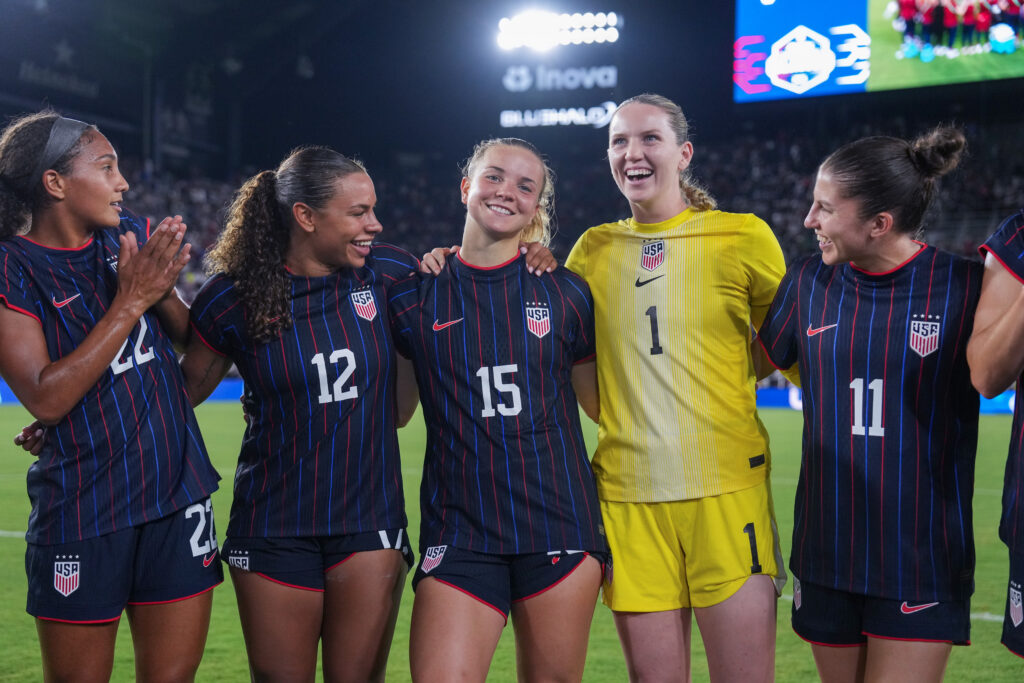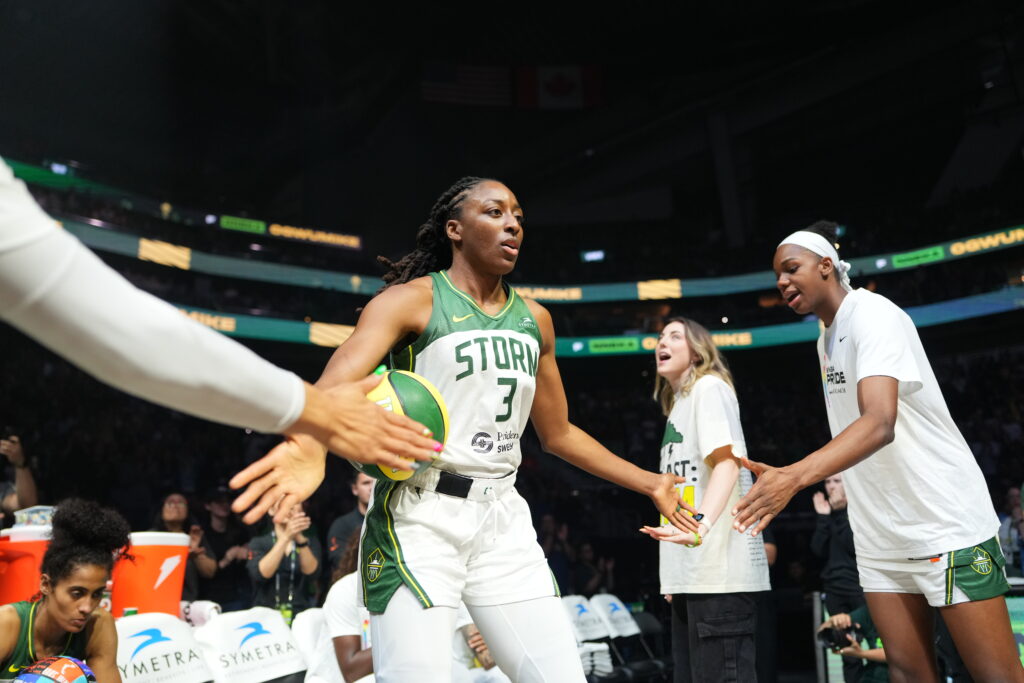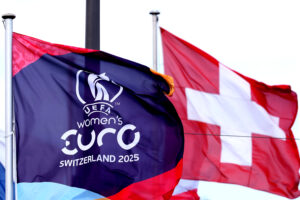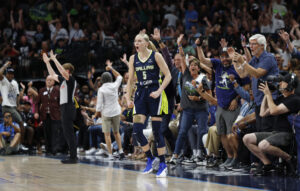Maria Sharapova announced her retirement from tennis this week at the age of 32. Since arriving in America with her father in 1994 with less than $1,000 (and speaking no English), Sharapova has won five Grand Slam titles en route to becoming one of the most iconic figures in the world of sports. Below, we remember the moments that defined her career.
2004: Upsets Serena Williams to win Wimbledon
Seeded 13th and only 17-years-old, Sharapova pulled off one of the greatest upsets in tennis history when she knocked off Serena Williams to win Wimbledon in 2004. Serena was both the defending champion and the tournament’s top seed. The win kicked off “Maria Mania,” as a sharp increase in media attention made Sharapova an overnight celebrity.
2005: World No. 1
Sharapova became the first Russian woman to hold the world No. 1 ranking on August 22nd, 2005, and though her reign lasted only a week, she was able to reclaim the top spot in September of that year. The 2005 season was also notable for the fact that Sharapova lost to the eventual champion in every Grand Slam that she played in, further solidifying her status as an apparent up-and-coming superstar.
2006: US Open champion
After establishing herself as one of the world’s best players in the years since her Wimbledon victory, Sharapova returned to the top of the mountain by defeating top-seed Amélie Mauresmo to win the US Open.
2008: Australian Open champion and lingering shoulder issues
Sharapova won the 2008 Australian Open without dropping a set all tournament. However, an MRI scan later in the year revealed that Sharapova had been suffering from a torn rotator cuff since April. After a failed attempt to rehabilitate the shoulder, Sharapova had surgery, beginning what would become an ongoing cycle of treatment and injury. Even in a retirement interview with The New York Times, Sharapova said her shoulder hasn’t been fully healthy since before her 2008 surgery.
2012: Career Grand Slam
After multiple years of struggling to return to form, Sharapova had a personal renaissance in 2012. First, she won the French Open, completing a Career Grand Slam and regaining the No. 1 ranking in the world. Then, she became the first female to ever bear the Russian national flag at the 2012 Olympics, where she won a silver medal after losing to Serena Williams in the final.
2013: Off-court feud with Serena
After Sharapova upset Serena in 2004, many believed the next great tennis rivalry had been born. However, after topping Serena once more in 2004, Sharapova never beat her again, and with her retirement, the all-time record officially stands 20-2 in Serena’s favor. Instead of an athletic rivalry, we were given a personal feud, which officially broke into the public in 2013. Serena opened the exchange by taking an apparent shot at Sharapova’s boyfriend at the time (rumored to be one of Serena’s exes), claiming he had a “black heart.” Sharapova responded by pretending to be above it all before hinting that Serena might be dating her own coach.
2016: Doping charges and sharp decline
Sharapova released a letter in March of 2016 saying that she had failed a drug test at that year’s Australian Open. In her letter, Sharapova admitted to testing positive for meldonium, which had been added to the WADA’s banned substance list on January 1st, 2016 (and which was illegal in the US, though not in Russia). Sharapova, who had reportedly been taking the drug for 10 years to treat a magnesium deficiency, an irregular EKG, and a family history of diabetes, claimed to have overlooked the multiple warnings she was given in the lead-up to the ban.
The charges kept Sharapova off the court for 15 months and seriously tarnished her reputation among competitors, as following her reinstatement, she was given multiple wild-card invitations to major tournaments despite only just coming off a major suspension. Her subsequent decline in performance also forced fans to reconsider her on-court accomplishments. While age and chronic injuries certainly played a factor, given how long Sharapova had successfully competed with a bad shoulder, it was hard not to notice how quickly her game deteriorated post suspension.
2020: Announces retirement
By announcing her retirement in February, Sharapova guaranteed there’d be no farewell tour for one of the most famous names in the world of sports. Now we can start debating where she ranks all-time. For many, Sharapova is only on the fringes, given her pitiful record against Serena and her great-but-not-amazing final total of five Grand Slams.
The major discrepancies between Sharapova’s on-court accomplishments and off-court celebrity have been a source of controversy for over a decade. She was the highest-paid female athlete in the world for 11 years straight, which is a testament to not only her personal hustle and brand management, but also her famously marketable appearance. It’s hard to fault Sharapova for maximizing her earnings potential (and bringing attention to her sport while doing so). And yet, it’s also clear that she was able to monetize her image in ways her competitors could not, even as she was continually out-performed on the court.
Summarizing Sharapova’s career in a neat, final judgment is neither possible nor interesting. Whether or not her trophy case ever warranted her endorsement profile, the fact is she won our attention again and again. And in the world of sports, there may be no greater victory.
